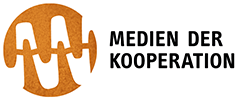In Collaboration with AGEM Arbeitsgemeinschaft Ethnomedizin (German Association for Medical Anthropology) How physicians and other healers conduct their encounters with clients is an integral element of becoming healers. Nevertheless, this knowledge is only partly provided by official channels or courses; rather, it is often learned in a subtle and implicit manner during practical apprenticeship. Despite broad investigations of the professional encounters between healers and their clients, few studies have addressed the question how exactly these skills and attitudes are learned. A main criticism of the patient-physician relationship in biomedical contexts has long been its asymmetry (Pilnick und Dingwall 2011), and empirical studies have time and again reasserted fundamental disparities between those seeking and those providing health services (Begenau et al. 2010). At the same time, these asymmetries are constitutive of the healing encounter, because they form a functional difference between healer and client: without the attribution of special knowledge and skills to the healing party, the whole encounter would be dispensable. In contrast to biomedical contexts, the encounter of non-biomedical healers with their clients is often conceived as being less hierarchical. Yet, we would assume a similar functional difference between them. We assume that how these asymmetries and differences are managed and performed in daily practice is largely learned in the formative years of apprenticeship. Since the seminal studies “The Student Physician” (Merton et al. 1957) and “Boys in White” (Becker et al. 1961), there has been little in-depth research on how students of healing practices acquire such skills and how they are transmitted in learning contexts. These studies have shown how novice physicians learn to cope with the contingencies of daily work and how they learn to balance responsibility and experience. Through fine-grained ethnographic fieldwork, the researchers were able to show how such skills and attitudes are learned in the processes of becoming a competent member, by observing and imitating role models and by being sensitive to the norms and values displayed by significant others. In line with Becker et al., we assume that most of these skills are part of the tacit learning in the “hidden curriculum” (Hafferty and Franks 1994). The hidden curriculum refers to those aspects of learning contexts that do not figure prominently in official accounts, but are learned as part of becoming a member of a healing profession. Despite (or because of) their informal character, they serve as powerful orientations that slowly become taken for granted, in many cases without explicit recognition by those who teach and learn them. In the course of the conference, we want to shed light on how apprentices of healing professions are preparing and are being prepared for their encounters with patients or clients. Irrespective of the given healing cosmology, all healing knowledge is ordered in specific systems, organized in rules, schemes, and procedures that need to be adapted to the individual healing encounter. Therefore, every healing encounter is laced with fundamental uncertainties – not only with respect to treatment but also to interaction (cf. Fox 1980; Henry 2006). And all healing apprentices learn how to cope with these contingencies. The subtle transmission of a “paternalistic” model of physician-patient interaction in biomedical education might account for the long-standing asymmetry that are part of the official program of medical education, despite longstanding calls for “shared decision making” and “informed consent” (Stollberg 2008) . Consequently, “professional dominance” (Freidson 1970) is a skill that needs to be learned before it can be practiced. Thus, we want to compare and take a closer look at the subtle modes of how students of different healing practices – biomedical as a well as all other healing traditions – are prepared and how they prepare themselves for their encounters with patients. We want to ask questions along the following lines:
- Which attitudes are transmitted for coping with the tension between standard procedures and individual cases?
- Which roles do authority, performances of authority, competence, empathy, uncertainty, responsibility, and experience play?
- What modes of teaching and learning the “hidden curriculum” can be observed?
Conference Language: English The conference is free of charge, please register at: sekretariat@sfb1187.uni-siegen.de CME points for physicians and psychotherapists can be obtained. If you have any questions, please contact the organizers: Cornelius Schubert cornelius.schubert@uni-siegen.de Ehler Voss ehler.voss@uni-siegen.de


